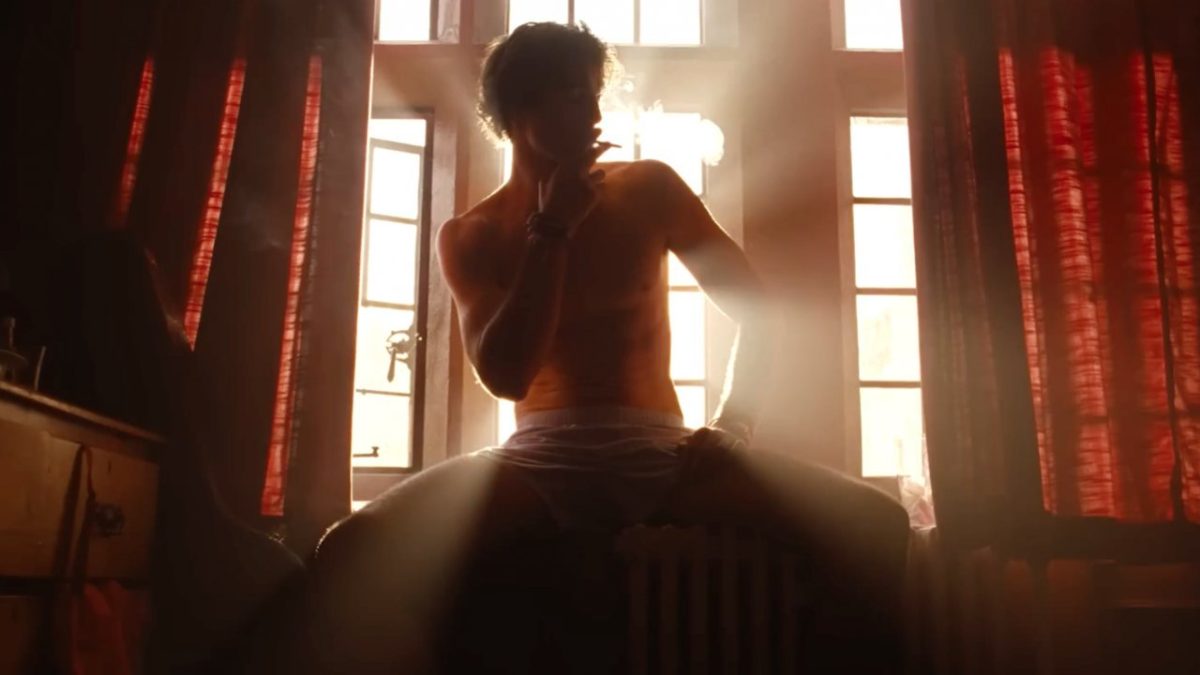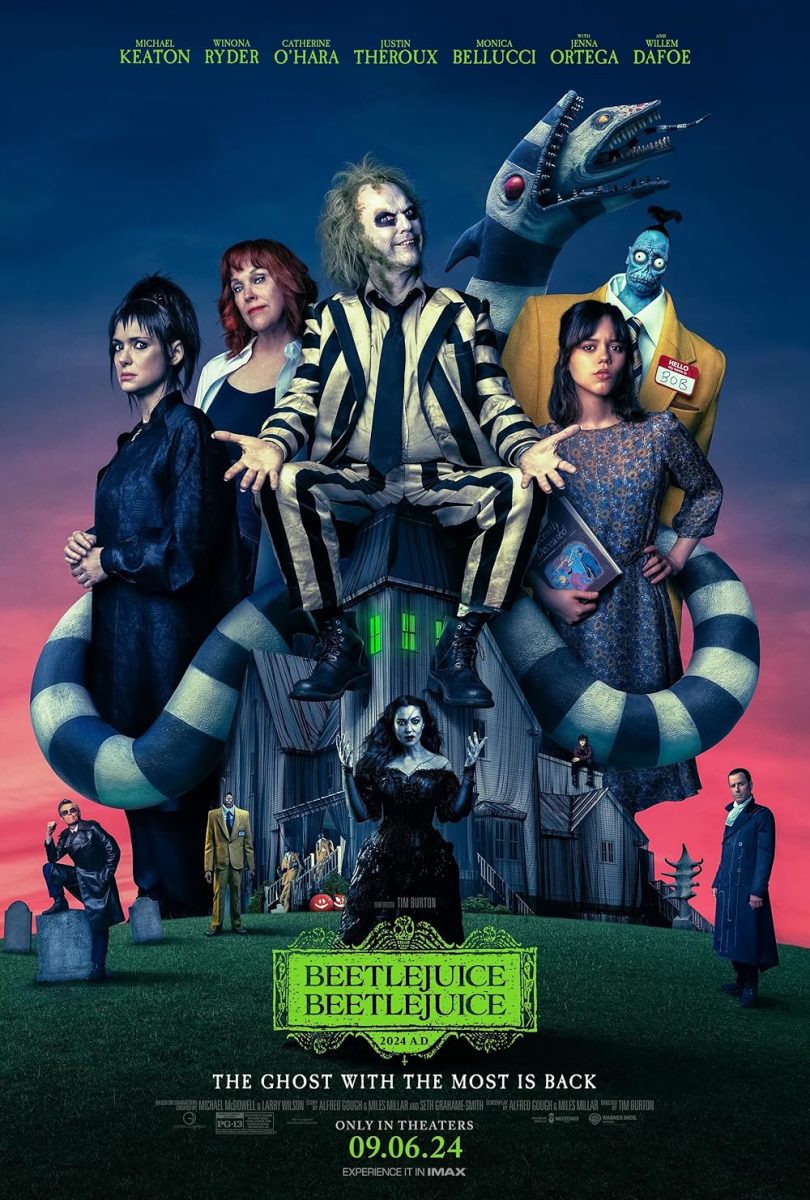This review contains spoilers.
Emerald Fennell’s “Saltburn” transports viewers to an early 2000’s English castle where Oliver, played by Barry Keoghan, spends an unforgettable summer with his aristocratic classmate Felix, played by Jacob Elordi. The film offers an intricate plot line that slowly unravels itself through unpredictable twists and turns — all of which were left impressively unspoiled by the film’s trailer.
Fennell crafted highly unlikeable and unrelatable characters that still managed to garner sympathy from the audience. Planted within the film are brilliant Easter eggs that foreshadow Oliver’s strategic journey to wealth and produce allusions to classic literature, as well as an honest evaluation of ultra-wealth and class consciousness.
Unfortunately, much of this has been overshadowed by three “shocking” sex scenes that the internet and viewers simply cannot seem to get over.
There is validity to the argument that television and movies have recently been pushing the envelope a bit too far where graphic, sexual content is concerned. There is also validity to many artists’ belief that filmmaking is inherently an artform and should be treated as such: unconfined by barriers and granted the space to be provoking.
I offer another perspective — as someone who loves movies and finds the majority of graphic scenes distasteful, graphic and unorthodox scenes have the potential to intensify the film’s cinematic language in a raw form accomplished uniquely by cinema if the action serves a sincere purpose in the narrative that could not be as effectively portrayed through dialogue.
Each of “Saltburn’s” three scenes that broke the internet, leaving viewers shocked and even appalled, were crucial to either portraying the severity of Oliver’s obsession with Felix or strengthened Fennell’s cinematic style.
The “Vampire Scene”
To fully comprehend the scene that takes place outside Oliver’s window between himself and Venetia where he gives her oral sex despite it being a “bad time of the month,” as she delicately puts it, we need to understand that Fennell views “Saltburn” as a vampire film.
“Saltburn” is a vampire film in the same sense that “Taxi Driver” is classified as a western film genre-wise despite taking place in New York City and being utterly cowboy-hatless. Genres are characterized by themes and archetypes rather than the literal usage of cowboys or vampire fangs.
Fundamentally, the concept of vampirism is the idea that abnormal people are disguised seamlessly within our society but, in their true form, do not possess the same human characteristics and instead aim to suck the lifeblood out of the innocent by seducing them with the facade of charm and often wealth. Throughout the film, Felix’s family repeatedly mentions how “cold” they physically feel or how “cold-blooded” they are as they continually take in the helpless and unfortunate to only discard them later.
Oliver’s interaction with Venetia demonstrates how, in attempting to take their fortune, he must out-vampire the vampires by seducing them into trusting him one by one. By the end of the film, it becomes clear that Oliver is the ultimate vampire.
The “Bathtub Scene” and the “Graveyard Scene”
The most revelatory plot twist arrives at the end of the film when Oliver recounts to a dying Elspeth that every coincidental tragedy that afflicted her family was in fact an intentional, strategic move carried out personally by himself. From prompting his first conversation with Felix by piercing his bike’s tire to each family member’s eventual death, every step he took was another move in his elaborate chess game and entirely necessary for the plan to succeed — with the exception of two scenes.
Although Oliver’s friendship with Felix had ulterior motives, he became enamored with Felix to the point of madness. The movie begins with Oliver asking himself if he was in love with Felix and, in his final monologue, he admits that he had loved Felix. Fennell and Keoghan wanted Oliver’s character to portray something more intense than love — obsession.
When Oliver watched as Felix spent time alone in the bathtub and then proceeded to slurp the remaining excrement before it disappeared down the drain forever, no one was watching. His actions were not prompted by furthering his plan in any way. In fact, risking being caught in the act would have arguably been detrimental to his goal. He did it because he couldn’t help himself — he was a man obsessed.
In the same vein, Oliver’s expressive grief and actions at Felix’s gravestone solidify his unrequited obsession with Felix as no one was there to witness his grieving. No one was there that needed to be convinced of Oliver’s loyalty to his slayed friend as he was entirely alone. Keoghan took Oliver’s grief and obsession and portrayed it through a display of raw emotion expressed through a sexual act. This scene was actually not in the original script and was improvised by Keoghan himself as he wanted to see how far he could push the boundaries of his character’s obsession.
There are a lot of wonderful details to digest and analyze in “Saltburn.” You would be amiss if you were not to appreciate the brilliance of the film and instead chose to fixate on three scenes in the most literal, immature way possible as a viewer. As for the limits on what R-rated content is becoming acceptable in popular films, it is crucial to view the scenes critically and distinguish between what is necessary and tasteful versus what is being shown gratuitously merely to solicit a shock factor.















